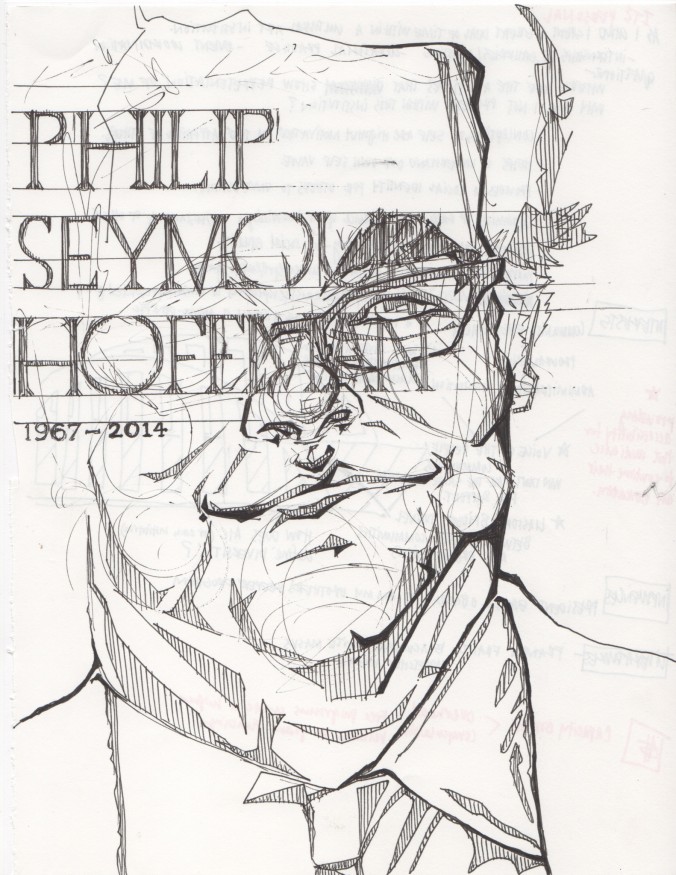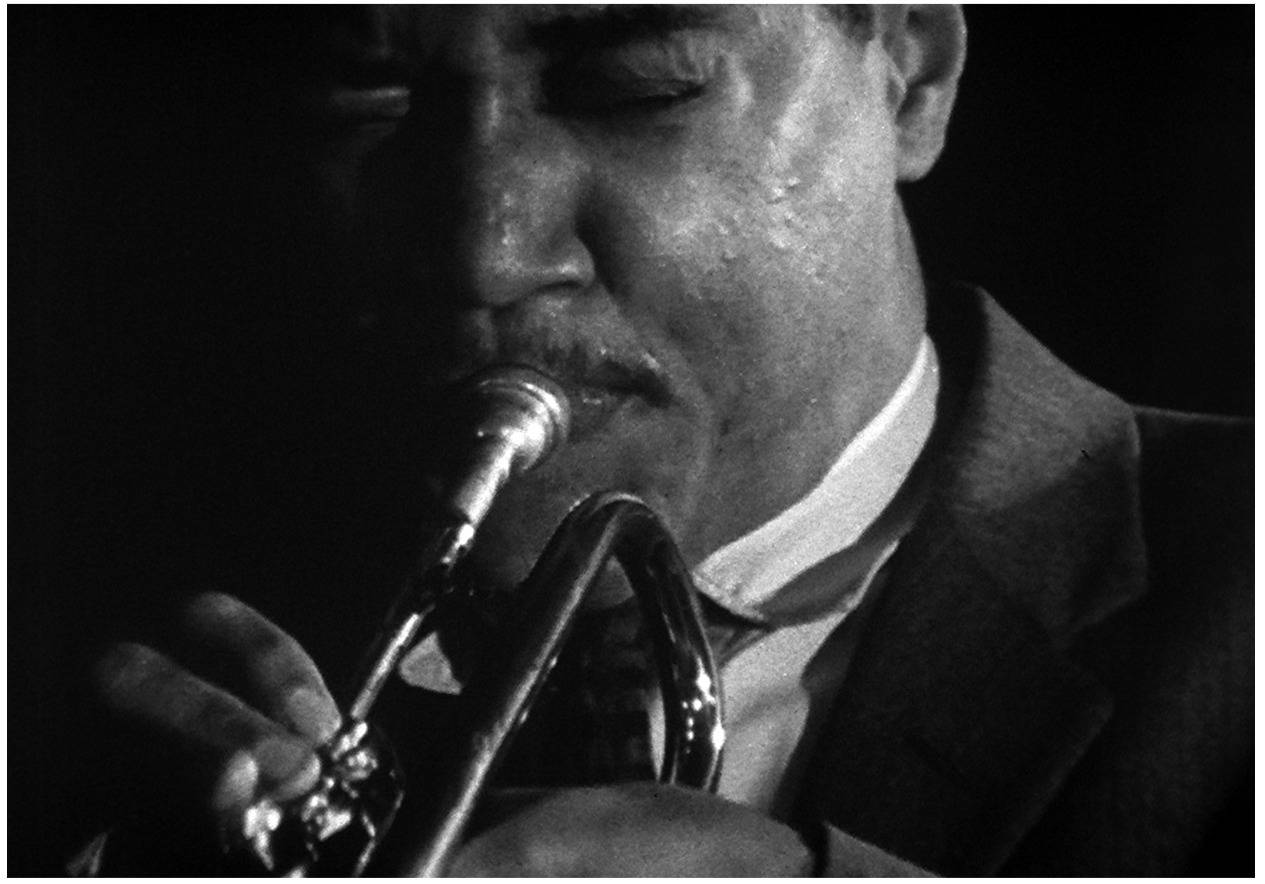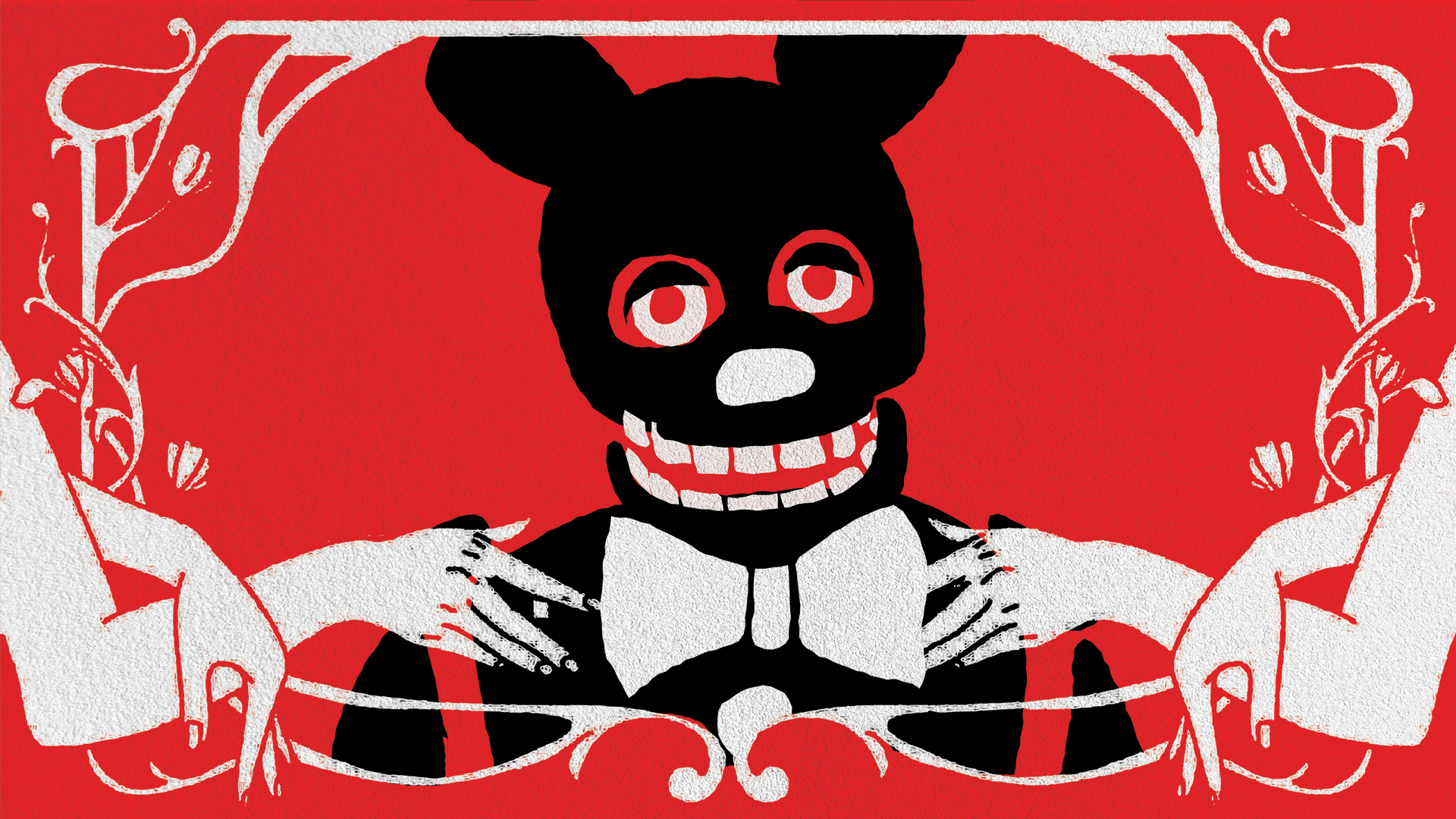
Illustration by Jessica Moss.
Besides the inquisitive Harriet the Spy (the 1996 film) and the neurotically drawn book series Amelia’s Notebook, my youth journalistic aspirations were markedly influenced by the late Philip Seymour Hoffman’s work. Not only did the considerably talented actor and director creatively affect me, but his performances also inspired me to seek out a life as an artist.
From his gruff, sophic character as American music journalist, Lester Bangs, in Almost Famous (2000)—who wrote criticism, notably for Rolling Stone and Creem Magazine—to the 2005 film Capote based on the impenitent and determined Truman Capote, an American author who investigated and researched a slain Kansas family for his book, In Cold Blood. Hoffman is one of the reasons I became a writer, which makes his premature departure even more harrowing in my eyes.
Philip Seymour Hoffmann was born on July 23, 1967 in Rochester, New York and he studied at the New York State Summer School for the Arts and New York University. Having begun his acting career opposite Al Pacino in the 1992 film A Scent of a Woman, Hoffman soon landed supporting roles in the films Nobody’s Fool (1994) and Twister (1996). Although his acting had progressed to notable roles, Hoffman’s personal life was apparently less gratifying.
Hoffman grappled with drug addiction. He, like many of his characters, was seduced and eventually destroyed by substance abuse. His alarming death at age 46 has capsized the acting community and it’s stunned us all. It begs the question: what do we really know about Philip Seymour Hoffman?
An actor who loses himself while in character is often considered a great artist. No one, however, talks of regaining the original identity misplaced in the process. No one speaks of the pieces of “self” left behind. After being someone else day in and day out, how does one separate fiction from reality?
Is Hoffman the character Allan from Happiness (1998), Caden Cotard in Synecdoche, New York (2008), Father Brendan Flynn from Doubt (2008), or Lancaster Dodd from The Master (2012)? I like to think that an actor puts a bit of themselves into their films. I imagine Hoffman chose characters that mimicked a version of himself in some way, shape, or form. The Henry Ward Beecher quote, “Every artist dips his brush in his own soul, and paints his own nature into his pictures,” comes to mind. It’s been said in order to play a character one must understand the character, to “become” them.
If one’s career is fantasy then how does the individual escape from the reality of illusion? The simple answer is drugs, but it’s far more complicated than that. In the official report, Hoffman’s cause of death was an overdose of heroin, cocaine, benzodiazepines, and amphetamine. Apparently after 23 years of alleged sobriety, Hoffman allegedly began taking prescription pills and started using heroin, which led to his, in Russell Brand’s words, “inevitable” fatality.
Russell Brand, actor and comedian, had a lot to say about Hoffman’s death. In a letter to The Guardian Brand wrote, “In spite of his life seeming superficially great, in spite of all the praise and accolades, in spite of all the loving friends and family, there is a predominant voice in the mind of an addict that supersedes all reason and that voice wants you dead. This voice is the unrelenting echo of an unfulfillable void.”
With this insight, Hoffman’s choice to play emotionally torn, cinematic characters doesn’t seem too far-removed. In The Talented Mr. Ripley (1999), Hoffman played Freddie Miles, a drugged-up self-important wealthy socialite; Allen, a cringe-worthy, pitiful creature who calls women from the phone book and masturbates while talking to them in Happiness; Jon Savage, an estranged son and brother who faces his emotional disconnection with his family while caring for his dying father in The Savages (2007).
Each performance Hoffman took on supplied a grocery list of demons, and whether or not Hoffman admitted it, he probably shared some of these internal conflicts with his roles. In Lynn Hirschberg’s article, A Higher Calling, from The New York Times Hoffman said, “Sometimes, acting is a really private thing that you do for the world.” In a culture that obsesses over the rich and famous, Hoffman was an actor who didn’t fit into the “celebrity” mold. There’s no reality show, or magnifying glass on his personal life, but he is an artist the public wants to know and understand. Like so many that have come before him, Hoffman, for those who did not know him personally, must be comprehended through his work.
I discovered Hoffman at a time when I felt no one understood me. In Almost Famous, William Miller (Patrick Fugit) a high schooler, is given the chance to write a story for Rolling Stone and tour with a rock and roll band. William is offered sage advice from Lester Bangs on how to deal with the pressures of being a journalist to famous musicians.
To me, the words of Hoffman as Bangs became unshakeable truths in my artistic endeavors: “My advice to you. I know you think those guys are your friends. You wanna be a true friend to them? Be honest, and unmerciful,” and “Great art is about conflict and pain and guilt and longing and love disguised as sex, and sex disguised as love.”
I believe Hoffman shared a part of himself, like all remarkable actors, in his work. His death was unfortunate, but I think Hoffman suffered a private and visceral addiction none of us can truly fathom.
I’m not going to pretend I knew Philip Seymour Hoffman because I didn’t. But I won’t deny others or myself the feeling of being touched irrevocably by a piece of literature, artwork, or film.
His absolute role was that of a leader in the arts—his craft and existence in cinematic history essential. Hoffman’s passing has left a pit in our stomachs and a void in the world of cinema. His gifts will be sorely missed.
Thus, I leave you with one of my favorite Hoffman as Lester Bangs quotes: “The only true currency in this bankrupt world is what we share with someone else when we’re uncool.” In this regard, please consider this article and myself as an uncool contribution to the universe.





















